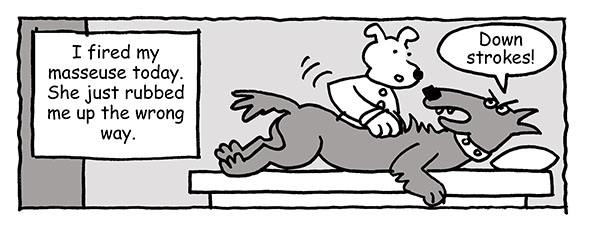
It's becoming more and more common for students to learn Business English to improve their career opportunities both at home and abroad in English speaking countries.
A 2012 survey of non-native English speakers found that although 92% recognised that English communication was important for success in their work, only 7% felt they had the necessary English level they need.
If you could have any job in the world, what would you like to be? What makes a job a 'good job'?
Read through this short text about work and see if you can guess which words have been left out.
St. Patrick's Day is celebrated on 17th March each year. St. Patrick's Day is an Irish holiday celebrated all around the planet to _1_ the patron saint of Ireland, Saint Patrick. He is said to have _2_ on March 17 around the year 493.
If I told you my brother eats like a horse, what would you think?
Would you think that he ate horse food, that he had a big appetite or that he was a horse?
Eats like a horse is an idiom. When someone eats like a horse, they always eat a lot of food.
"Although he eats like a horse, he never gets fat."
Another look at a couple of words that English learners often confuse. Do you know the difference in use between dead and died?
Dead is an adjective. It means no longer alive. For example:
There's a dead mouse in the garden.
My grandfather has been dead for ten years.
The pet fish I bought my daughter last week is already dead.
We see these two words misspelled ALL the time especially on Twitter and Facebook.
Let's take a look at the correct use of these words.
Lose: is a present tense verb. It has two meanings:
i) To have lost something. You no longer know where it is:
"Don't lose your bag. Be careful where you put it."
ii) To be defeated:
"I always lose when I play tennis against my brother."
The past form of both meanings is lost.
"I lost my bag!"
Being able to understand long written texts is an important skill if you want to take an IELTS course or any type of English language proficiency test. Carefully read through this article and answer the 8 related questions. Let us know if you have any questions about what you read.
What's the difference between have to, supposed to and ought to?
When you must do something, you have to do it. It is used for a situation that has no choice. Have to is used for obligations.
"Students must wear their uniforms to school or they will be sent home."
"In England, you have to drive on the left."

When we rub someone up the wrong way, we annoy, anger or irritate them. When people rub us up the wrong way, they usually do not know they are doing something wrong.
"My young brother rubs me up the wrong way. He is so annoying."
"The way he talks really rubs me up the wrong way."
When we hear the word like we think about things we enjoy, "I like English." There are other uses of the word. How familiar are you with these?
"What's she like?" - 'What...like?' is used when asking about someone's personality or character. You could answer with:
She is funny/patient/outgoing.